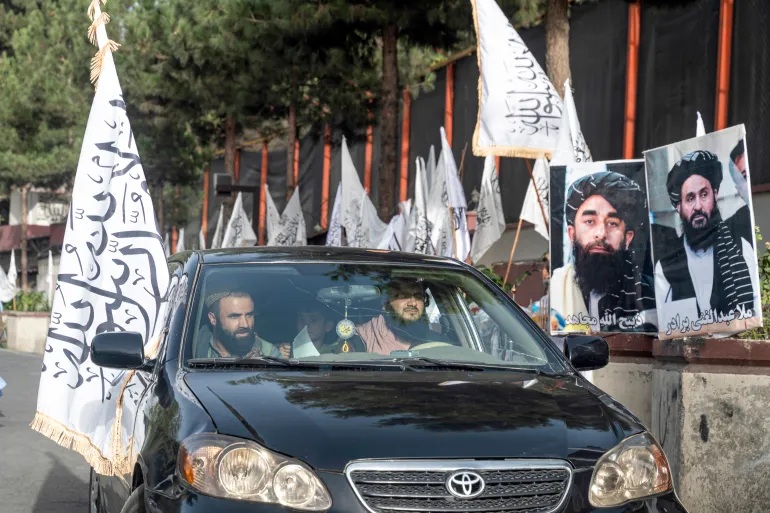The Taliban government marked the second anniversary of its sovereign takeover of the country on Tuesday. The interim Afghan government, its barely armed military and common supporters celebrated this occasion by arranging military parades in the national capital Kabul, and other major cities including Kandhar, the cradle of the Taliban movement, from where Taliban Supreme Leader Hibatullah Akhundzada ruled the country by decree. The flags of Islamic Emirate flew at full mast across the capital, official ceremonies, and political rallies were held to commemorate the revival of Islamic Emirate and reconquest of the Taliban rule for the second time in the country’s history.
The Afghan nation has marked two full years of its liberation from foreign occupation and Taliban rulers have successfully completed two calendar years in power after the last American soldier left the country on a dark summer night of August 2021. In fact, it was a great victory for the Taliban movement who fought back against the US-led global coalition for nearly two decades and regained its rule in Afghanistan. Although, it came in the result of months long political negotiations,yet Taliban’s unceasing and prolonged armed resistances was the vital force behind politically engineered unilateral withdrawal of Foreign forces from the country. There had been a mixed reaction from the Afghan populus regarding the pros and cons of Country’s liberation, because that transpose could not bring any change for the common Afghan and those economic woes and social problems increased many folds after the Cleric regime took the ruins of the government in Afghanistan.
Historically, Taliban assumed the charge of the government with futile economic and humanitarian conditions, the US-backed government collapsed and its leaders fled into exile with bags full of US dollars, Pound Sterling and gold. The international community continues to grapple with the prospects for their dealing with the Taliban authorities, however the US led western nations restored to punitive measures including reimposition of the global sanctions against Islamic Emirate and freeze of Afghan assets abroad, that unleashed unprecedented economic challenges to interim rulers and inflicted a heavy price on the people of Afghanistan. Although, Pakistan and other Muslim nations including Saudi Arabia, Qatar and the UAE played an adorable role in mobilizing the Organization of Islamic Cooperation (OIC) to timely channelize economic, legal and technical assistance to Afghanistan that remained crucial in avoiding an humanitarian disaster and reinstating the Afghan banking system in the country. However, all those sincere efforts were insufficient for bringing a revolution in an aid-ridden economy of Afghanistan.
Onset of those monetary, economic and diplomatic challenges, the Taliban interim authorities failed to focus on national issues including the need for political inclusiveness, economic revival, maintenance of law and order, improvement of foreign relations, and fulfillment of obligations under the Doha agreement that paved the way for restoration of the Taliban rule in the country. There had been some efforts by the Afghan rulers for construction of several multilateral trans-Afghan connectivity and energy transportation projects that needed bulk investment which was not possible in Taliban ruled Afghanistan. Unfortunately, the cleric regime resorted to cosmetary political measures by putting a curb on women’s rights, squeezing civil liberties, imposing a ban on girls education and work that attracted worldwide outrage from civil society, human rights defenders and nations around the globe. Realistically, those policies had multiplied the political and economic cost for a common Afghan instead of bringing a positive change in their lives. Meanwhile, Taliban reunion and hosting of foreign banned terrorist outfits strained their relations with neighboring countries including Pakistan and caused serious security, political and diplomatic challenges for crises hit Afghanistan.
As of today, the Afghan nation is embattled with chronic issues relating to its social and civic life, livelihood and access to fundamental rights, while an all time high sense of insecurity and deprived ness overwhelmed their lives. Change of government and system could not improve their condition, failed to end their sufferings and stopped halfmust away from visualizing peace and economic growth. The Afghan nation has suffered utmost over the past four decades, now it deserves peace, and prosperity. The Taliban rulers must review their policies and governance style so they can bring a fundamental change in their nation, that is not only a desire of the Afghan public but a quest of all well wishers of Afghanistan.







